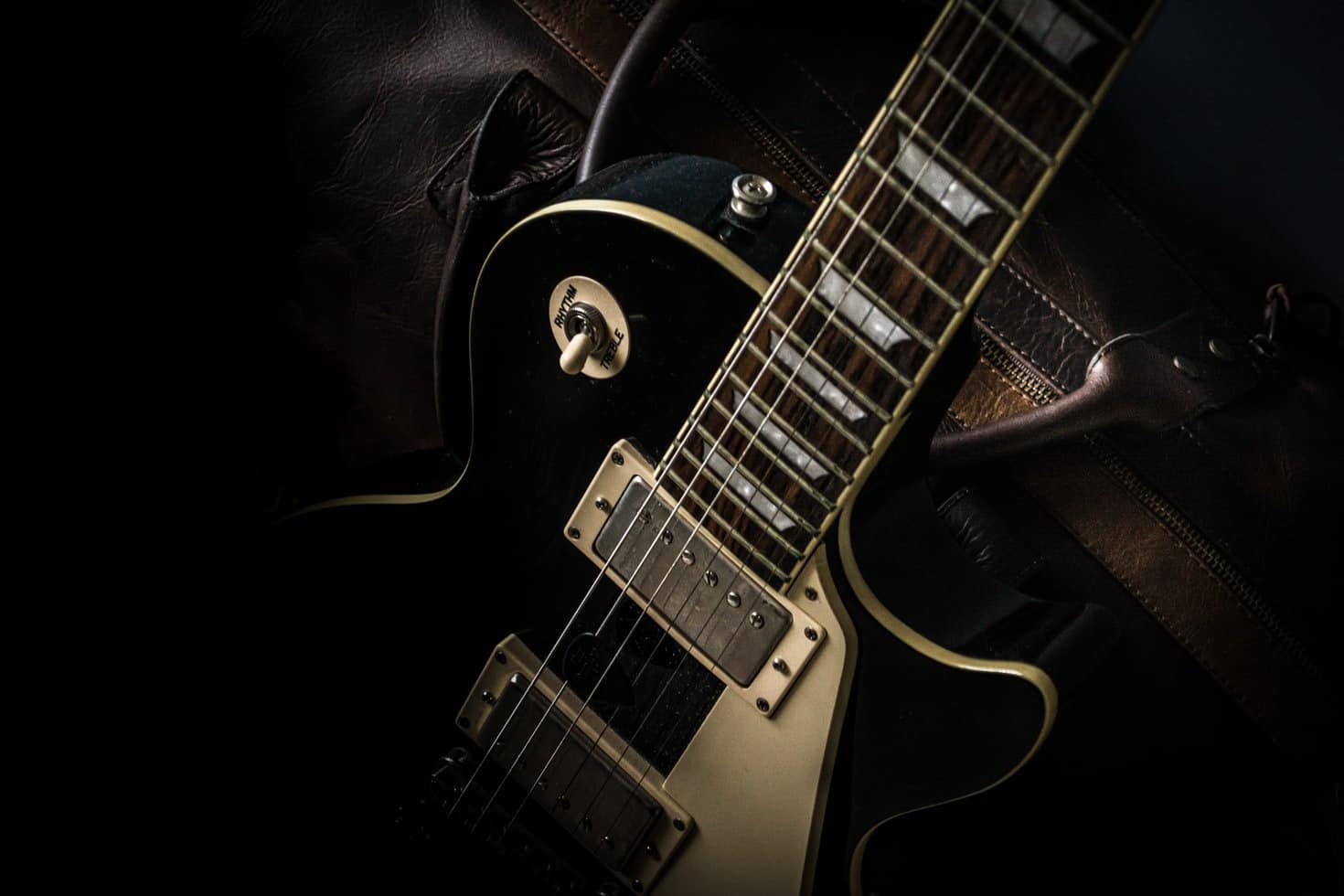In life, change is the only constant.
The world of music, too, cannot be out of this natural law.
After all, the 20th Century is a vivid example of how rapidly music has evolved.
From the first blues chords played by black musicians to the psychedelic Hendrix guitar solos and the twin guitars of Thin Lizzy, Judas Priest, and Iron Maiden.
Starting with the eerie and gloomy Black Sabbath’s riffs of the ’70s, passing through the party glam metal and pop from the ’80s, and continuing with the angry, depressed grunge era of the ’90s.
Music has had so many faces and genres that it deserves an article of its own.
Such evolution involves giving in certain characteristics to leave room for a newer form of music.
With this in mind, many musicians had made a question that has them both intrigued and terrified: Is music giving up on guitars?
The guitar is not dying, and musicians will probably continue playing with them. The fact that Rock acts are not as acclaimed as Rap or Electronic, does not mean the guitar is not popular anymore.
With this in mind, let’s find out why this myth has become a fact for many, and an opinion for others.
Why is the guitar considered a dying instrument?
The guitar is not dead, and will probably live on for many decades or even centuries.
When someone claims that the guitar is dying, what they are trying to say is that the instrument’s focus is losing popularity.
According to 909Originals, Spotify’s most listened genre is Hip Hop. Meanwhile, radio’s number one genre is pop music.
Neither Rap nor pop has guitars as their central point.
Sure, they may count on six strings for their compositions, but they are just one out of the many instruments used.
Guitar solos are, on the most part, a rarity.
Rap relies on turntables, samplers, and drum machines.
Pop, on synthesizers.
There is little to no place for guitars, and truth is, it should remain that way.
After all, other genres depend heavily on guitars.
The most important, of course, is Rock music.
What’s happening in Rock music nowadays?
Rock deserves analysis on its own.
When we think about this genre, the first thing that comes to our minds is an electric guitar.
It has earned its reputation as an iconic symbol for Rock and metal.
Rock fans enjoy guitar shredding and loud solos, which means that the instrument is prevalent.
However, this leads to a question: How much Rock music do people listen to?
Some websites (such as Musicianwave) have stated that Rock music stands between a solid #3 or #4 in the charts of most listened genres.
That’s a pretty good position considering that well-known genres such as classical and country stay at #7 and #9 positions respectively.
If Rock is still in demand, then guitars are unlikely to disappear.
Funnily enough, some relevant Rock acts from the last years do not play with electric guitars.
I’m talking about Royal Blood and Death From Above 1979, which have bass, drums, and voice, but no guitars.
Of course, those are just two examples out of many.
Modern bands such as The Pretty Reckless, Dirty Honey, Rival Sons, and Greta Van Fleet, make justice to the guitar sound.
What is more, Foo Fighters being probably the most listened Rock band of the last decades, now has 3 guitar players on their live performances!
This shows that Rock is still keeping the flame of guitar lifespan alive and burning.
Guitar is more accessible than ever
One thing many people underestimate about this brand new world is how easy is to start on guitar.
The internet has made buying more comfortable than ever, which makes guitars accessible.
Youtube and Google have provided lessons, tutorials, tabs, and tips on how to play.
Learning a song by ear is simpler than before if we consider the fact that isolated guitar tracks are not hard to find, let alone possible.
All of this makes learning guitar appealing, both for newer generations and grown-ups who didn’t have a chance in the past.
Are there any young guitar heroes?
Among the biggest guitarists in history, we find Eddie Van Halen, Jimmy Page, and Randy Rhoads.
Those have left a footprint that will take centuries to be erased.
But what happens with newer musicians?
While there are plenty of talented guitar heroes, it seems that none of them are making a significant impact. At least, not as big as the ones that emerged during the ’60s, ’70s, and ’80s.
Who knows? Maybe they are not making an impact yet.
Time will tell. For now, let’s simply enjoy their art and talent.
Here is a list of some of them:
- Christone Ingram
- Blake Mills
- Daniel Donato
- Harrison Whitford
- Jackie Venson
- Jake Kiszka
Will the guitar die for good?
Some claim that there will be a time in which guitar vanishes from the world of music.
When will it happen? Nobody knows for sure, and no one should know the answer either.
Actually, there is no answer because it is not a fact, but merely speculation.
There is no way to predict which instrument will die out, and which one will keep on living.
Think about the piano, for instance. Its peak popularity was at the end of the 19th Century.
Decades have passed, and many famous musicians and groups still use the piano for their compositions.
Elton John, Lady Gaga, Coldplay, OneRepublic.
The list goes on.
And to think Beethoven was already composing with pianos in the 18th Century.
Maybe the guitar will not fade away at all.
Why it would not be the end of the world that guitar lost popularity?
Lemmy Kilmister from Motörhead once made a statement that pretty much answers this question:
“There’s two kinds of music — music you like and music you don’t like.”
Guitar disappearing from the media is not the end of music.
Artists will continue creating songs even if there are no guitars, and such creations will continue to be pleasant to our ears.
The thing is one needs to accept that change is bound to happen and that it is a rule that applies to any sphere of life.
Now, for any guitar lover reading this, I’ll tell you the following.
I strongly believe the possibilities of guitar dying are absurd.
One thing is to lose popularity; another is becoming obsolete and forgotten.
Consider Operas, for example.
Operas emerged in the 16th Century approximately. They are far from being popular, but also far from being dead.
Who says guitars need to be either dead or alive? Maybe time will make guitar music something of a cult, just like operas or classical music.
Maybe not. Maybe three decades from here, a new music genre will emerge, and guitar will regain global popularity once again.
The only thing that’s known for sure, is that what has been made cannot be erased.
We will always have an extensive catalog of music where guitar shines brightly, and nobody can deprive us of that.
And if you are still not convinced, then pick up your guitar and make your music.
Show the world that the guitar is still the number one instrument by excellence.
Who knows? Maybe one day you become the new guitar hero.

Hello there, my name is Ramiro and I’ve been playing guitar for almost 20 years. I’m obsessed with everything gear-related and I thought it might be worth sharing it. From guitars, pedals, amps, and synths to studio gear and production tips, I hope you find what I post here useful, and I’ll try my best to keep it entertaining also.





